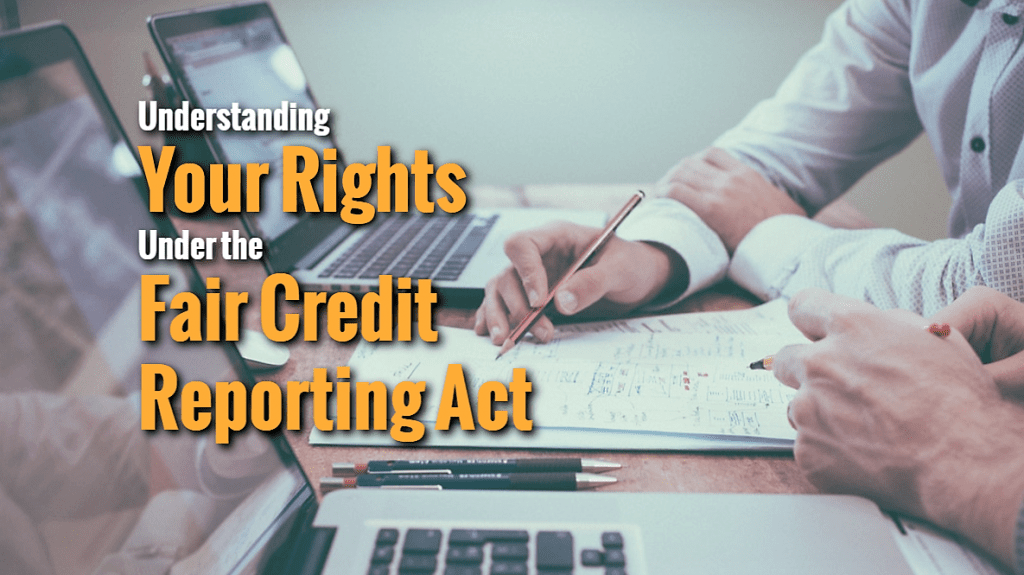Consumers have many rights about their credit report under the Fair Credit Reporting Act (FCRA). The agency or anyone else who reports information in your credit report must abide by the rules listed in the FCRA. This is to ensure that no consumers are treated dishonestly with their credit information. Here are some of the rights consumers have under the FCRA.
You Must Be Notified When Your Credit Information Has Been Used Against You
Whenever someone pulls your consumer report to deny your application for credit, that person must notify you and give you the name, address, and phone number of the agency that gave them the information.
You Have the Right to Know What Information Is in Your Credit Report
You can ask to receive a copy of all information about you from a credit reporting agency. When requesting for your file, you will need to show proof of your identification, requiring your Social Security number a lot of situation. Getting a copy of your credit report is free in many cases.
According to the Fair Credit Reporting Act (FCRA), you are allowed to obtain a free copy of your credit report if:
- someone made harmful acts against you for information on your credit report;
- you fell victim to identify theft;
- inaccurate information appears on your credit report due to fraud;
- you are currently jobless but are expected to apply for a job within 60 days.
You are also able to get a free copy of your credit report from the national credit reporting agencies once every 12 months from www.annualcreditreport.com.
You Have the Right to Dispute Errors on Your Credit Report
If you find an item on your credit report to be erroneous, you can write a credit dispute letter to the credit reporting agencies. Once the agency receives your dispute letter, they have 30-days to investigate the matter and correct the mistakes.
However, if the agency finds your dispute to be frivolous, or lacking information to warrant an investigation, they don’t have the obligations to conduct further investigation. Read this article for more information.
Any Outdated Negative Information May be Reported by the Consumer Reporting Agencies
Your credit report should not be reporting any outdated negative information. Credit reporting agencies may not report any negative information on your credit report that are older than seven years, or older than 10 years for bankruptcies.
Employers May Not Receive Your Reports Without Your Written Consent
Your employer may not receive any information about you from credit reporting agencies without your written consent. Written consent is usually not required in the trucking industry.
You May Look For Compensation From Those Violating the FCRA
If any credit reporting agency or an information furnisher violates the Fair Credit Reporting Act, you may be able to sue in court. Click here to read more about filing a lawsuit against a credit reporting agency.
Many states have their own laws regarding consumer reports. Do your research online or call your state or local consumer protection agency or state Attorney General to see what rights you have in your state.
Credit Lawyers for Fair Credit Reporting Act Violations
If you believe someone has violated the Fair Credit Reporting Act which has affected you, contact our credit lawyers immediately. Having a good credit means saving money on expenses such as interest and should be taken seriously. Any FCRA violations may cause your credit to drop.
Contact our firm right away if you suspect an FCRA violation by someone else. We provide free case evaluation. Call 818-254-8413.











